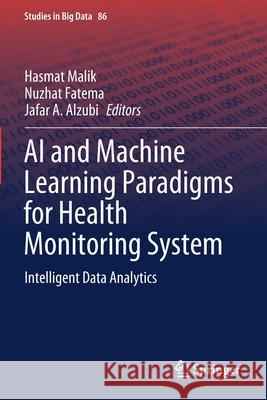AI and Machine Learning Paradigms for Health Monitoring System: Intelligent Data Analytics » książka
topmenu
AI and Machine Learning Paradigms for Health Monitoring System: Intelligent Data Analytics
ISBN-13: 9789813344143 / Angielski / Miękka / 2022 / 540 str.
AI and Machine Learning Paradigms for Health Monitoring System: Intelligent Data Analytics
ISBN-13: 9789813344143 / Angielski / Miękka / 2022 / 540 str.
cena 727,99
(netto: 693,32 VAT: 5%)
Najniższa cena z 30 dni: 693,97
(netto: 693,32 VAT: 5%)
Najniższa cena z 30 dni: 693,97
Termin realizacji zamówienia:
ok. 16-18 dni roboczych.
ok. 16-18 dni roboczych.
Darmowa dostawa!
This book embodies principles and applications of advanced soft computing approaches in engineering, healthcare and allied domains directed toward the researchers aspiring to learn and apply intelligent data analytics techniques. The first part covers AI, machine learning and data analytics tools and techniques and their applications to the class of several hospital and health real-life problems. In the later part, the applications of AI, ML and data analytics shall be covered over the wide variety of applications in hospital, health, engineering and/or applied sciences such as the clinical services, medical image analysis, management support, quality analysis, bioinformatics, device analysis and operations. The book presents knowledge of experts in the form of chapters with the objective to introduce the theme of intelligent data analytics and discusses associated theoretical applications. At last, it presents simulation codes for the problems included in the book for better understanding for beginners.











